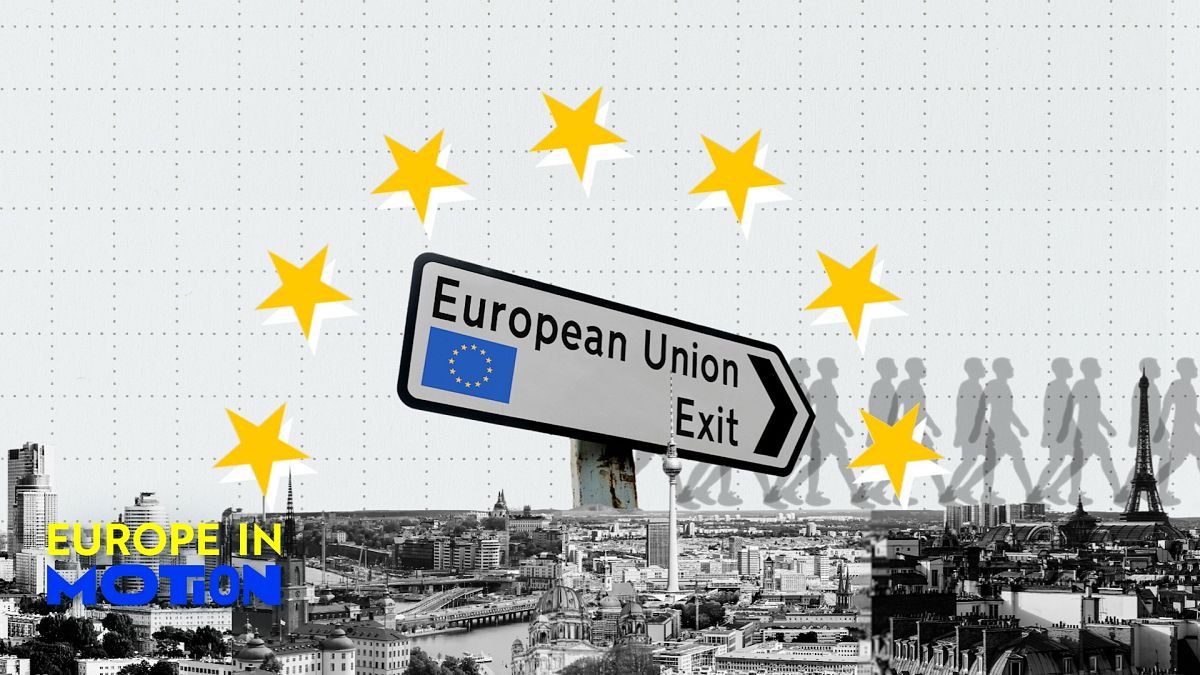Lifestyle
‘My losses started the day I was born’: A poet on what it’s like to call Gaza home

Mosab Abu Toha and his wife and children are currently living in Syracuse, N.Y., where he is a fellow at the University of Syracuse.
Penguin Random House
hide caption
toggle caption
Penguin Random House
Five days after the Oct. 7, 2023, attacks, Palestinian poet Mosab Abu Toha fled his home in Gaza, along with his wife and their three young children. Two weeks later, their home was bombed, leaving it in rubble.
“I say that I am houseless, but I am not homeless,” Abu Toha says. “I have a home to return to, which is Palestine.”
Abu Toha and his family initially took shelter in a refugee camp. When the camp was bombed, they moved to a school that had been turned into a shelter by the UN Relief and Works Agency for Palestinian Refugees. Eventually, he was able to get passports that enabled the family to leave Gaza. But while crossing into Egypt, Abu Toha says he was detained for two days and beaten by Israeli soldiers who claimed he was a member of Hamas.
Abu Toha has chronicled his life and his family’s journey in The New Yorker, The New York Times and The Washington Post, and also in his new book of poetry, Forest of Noise. He says that as a Palestinian who was born in a refugee camp, “My losses started the day I was born.”
“I lost my childhood,” he says. “I’m a Palestinian refugee who lost 31 members of my extended family, who was wounded in an airstrike in 2009 when I was 16 years old, who lost his house, who lost 300 friends.”

Abu Toha and his wife and children are currently living in Syracuse, N.Y., where he is a fellow at the University of Syracuse. He says the decision to leave his extended family behind in Gaza was one of the hardest choices he’s ever made.
“If there was one reason why I left Gaza, it was just to save my children because I couldn’t provide food to everyone in Gaza,” he says. “If I’m inside [Gaza], that’s true, that I could be close to my parents and my siblings and my relatives and my students, too. But I can’t do anything when I’m there except just to stay close to them, to die with them, to suffer with them.”

Forest of Noise
Penguin Random House
hide caption
toggle caption
Penguin Random House
Interview highlights
On his family members who are still in Gaza
My family in Gaza has been devastated. … My father and two of my siblings moved from north Gaza to Gaza City. And while another sister of mine with her three children are still in north Gaza, and in one voice message that my sister managed to send me, seven days after I lost contact with her, I could hear the Israeli gunfire. I could hear the airstrikes. I could hear the artillery shelling. …
People do not feel safe while they are inside their houses because they … could be bombed at any moment, just like what happened to our house last October. But also, they can’t even leave the house to look for food and look for medicine and look for water. This is the case of not a family or two. It’s about hundreds, hundreds and hundreds of families.
On trying to comfort his three young children
I was able to leave Gaza in December last year, and we lived in Egypt for about six months before we came to the States. And the first few days after we left Gaza, the children kept asking about their grandparents, about their cousins and about every relative they knew. Sometimes they would bring up the names of their friends. And by the way, one of my children lost a very close friend of hers, and I didn’t tell her about that. It’s really horrific. … I’m not sure if we go back to Gaza one day, she will ask about this friend of hers from kindergarten. So when we came here to the States, I noticed that my children stopped asking a lot of questions about what’s happening in Gaza. And I think this is good and bad at the same time.
On the trauma of his childhood resurfacing as a father
I’m someone who has never lived in peace in Gaza. I mean, the only sound I could hear was the drones buzzing. … When I go to the sea to swim with friends or even to have a picnic there, I could see the gunboats. Everything in Gaza reminds me of the occupation. … My frightening childhood shaped me. And I’m still traumatized from childhood. And I’m also traumatized as a father who could barely protect his children in Gaza. I was taken away from my children. And I mean, I could see myself in the eyes of my children when they scream. Each time they hit an airstrike, each time they get hungry because there is not enough food. … The starvation started early on after October 7th. I spent a lot of time in the street looking for food, looking for water for my children. So it is terrible to be a child in Gaza.
On having access to food that people in Gaza don’t have

When you eat something that other people don’t have access to, it feels terrible. I mean, again, I’m not living by myself. I’m not living alone. When we left for Egypt, I was sitting at the table with my wife and kids and eating and my son … would stop eating and ask, “Is my grandmother eating?” And he would start crying. I mean, this is a child who is 8 years old and he has empathy with other people. … And one time he started to cry asking whether his friends from the neighborhood were still alive. … It is terrible to be a parent in Gaza.
On his use of the word “genocide” [Editor’s note: “Genocide” is a legal term. While Israel has been accused of genocide at the International Court of Justice, the Israeli government strongly denies the accusation and the court has yet to make a final ruling, although a preliminary ruling found it “plausible” that Israel has violated the Genocide Convention.]

I know that it is a controversial term, but it’s not controversial when we see, especially now with what’s happening in north Gaza, where Israel separated Gaza City from north Gaza, where they are bombing people right now. So I think the word ‘holocaust’ started to be used, I think, 20 years after the Holocaust happened. So why do we really have to wait until the genocide has all that it needs to be called a genocide in order to call it that term? And I’m wondering whether the word really is lacking here, because what Israel has been doing and this is found in the rhetoric of the Israeli officials — they want to exterminate people in Gaza. They cut off electricity. What do you call it when you cut off electricity, when you cut off food, when you cut off water, when you when you target ambulances? I mean, what do you call this? I mean, do we really have all have to die in order for them to call it genocide? I mean, it’s enough, the way they are killing us in Gaza.
On why he doesn’t want to talk about Hamas

Hamas is a faction. … Whatever they say, they are not representing all Palestinians. So the rhetoric they are using, they represent themselves. Whatever the Israelis are saying, they are saying it as a country. So whatever Hamas is saying, whatever they are doing, they are not doing it as a state, we do not have an army. So you can say Hamas is not the Palestinians. And I do not have to agree with everything that Hamas says because I’m not Hamas. …
Israel [is] besieging us and bombing us and preventing us from building an airport. Why don’t we talk about these things? Let’s stop talking about Hamas. Let’s talk about what happened before October 7th. What happened before Hamas was established in 1987? Hamas is not the cause of the problem. This has been going on for decades, not for a year. Everyone in the world should understand this is not about October 7th. And even if there is a ceasefire, let’s be clear about this, even if there is a ceasefire, this doesn’t mean that there will be peace, because the same problems that led to October 7th, the occupation, the deprivation of the Palestinian people in the West Bank, in the Gaza Strip, it still continues.
Heidi Saman and Thea Chaloner produced and edited this interview for broadcast. Bridget Bentz, Molly Seavy-Nesper and Beth Novey adapted it for the web.

Lifestyle
Ben Affleck Directing Stella Beer Commercial Starring Matt Damon, David Beckham
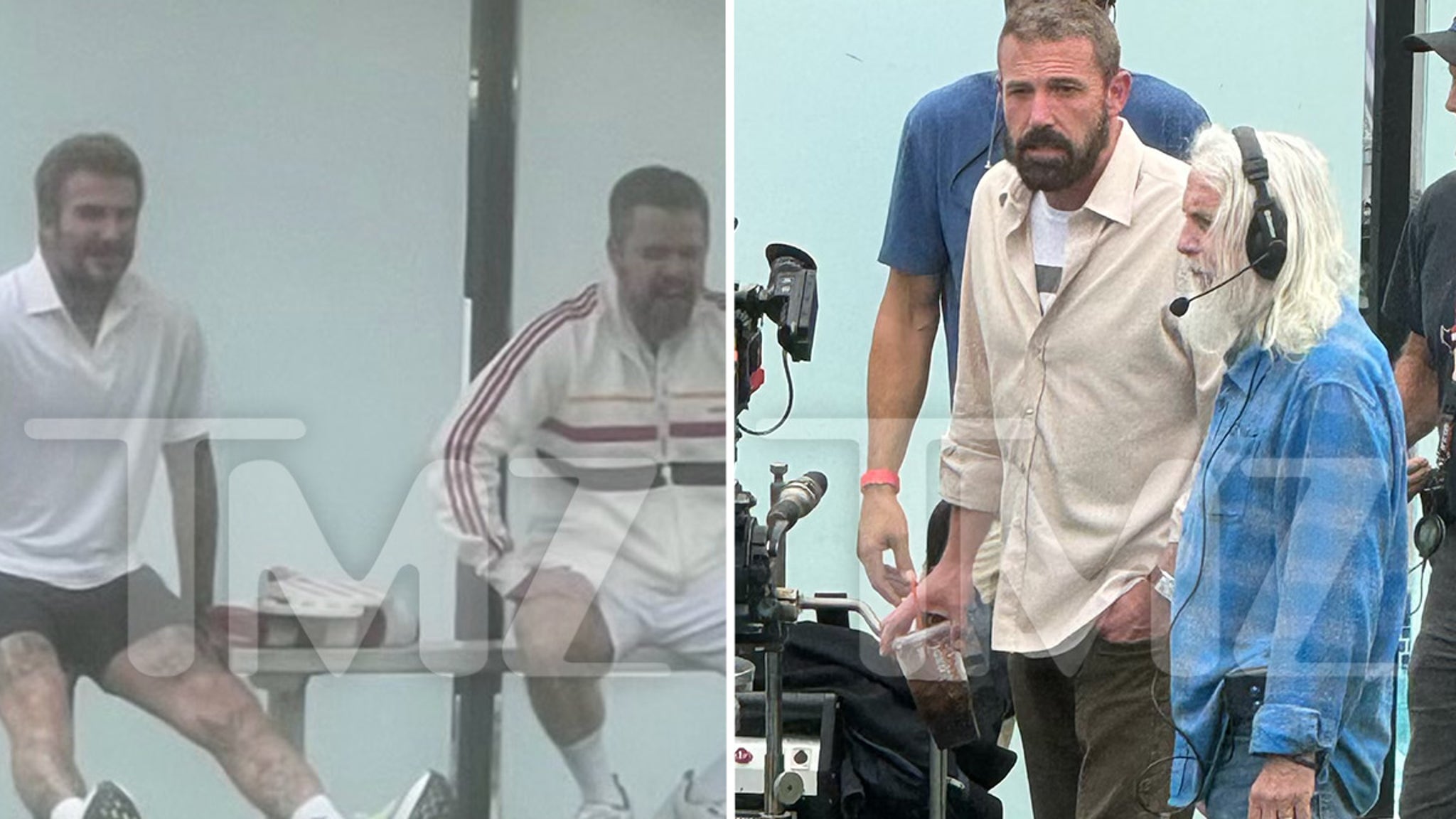
Ben Affleck is getting back in the director’s chair … and this time he’s overseeing a beer commercial starring his good buddy Matt Damon and soccer star David Beckham.
TMZ obtained photos of Ben, Matt and David on the set of a production Tuesday at Griffin Club Los Angeles in Cheviot Hills … and our sources tell us it’s for a new Stella beer advertisement.
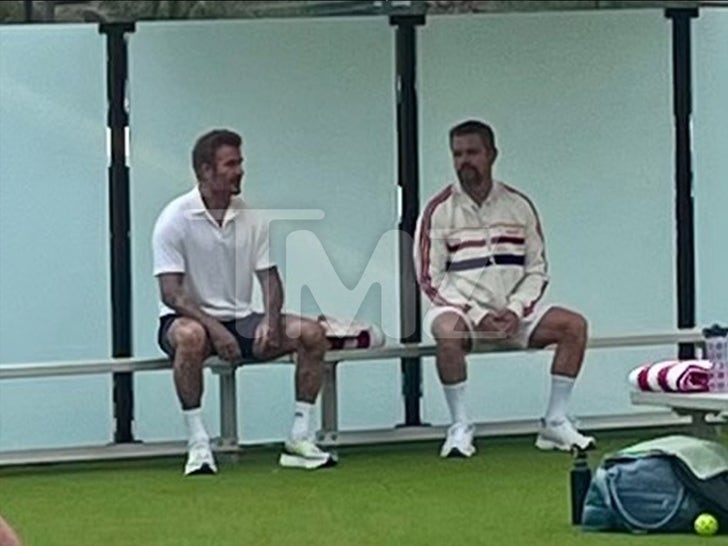
Matt and Dave appear to be in tennis gear … and it looks like they’re filming on a tennis court. The private, members-only club markets itself as a “premiere racquet, athletic, aquatic and social club.”
Ben’s directed movies in the past … including “Gone Baby Gone,” “The Town,” and “Argo” … and now it seems he’s trying his hand at commercials.
With a bunch of star power on set, we’re told the club was crawling with security … and it will be interesting to see what Ben, Matt and Dave have brewing here.
Stay tuned …
Lifestyle
Victoria's Secret fashion show returns following a 6-year hiatus
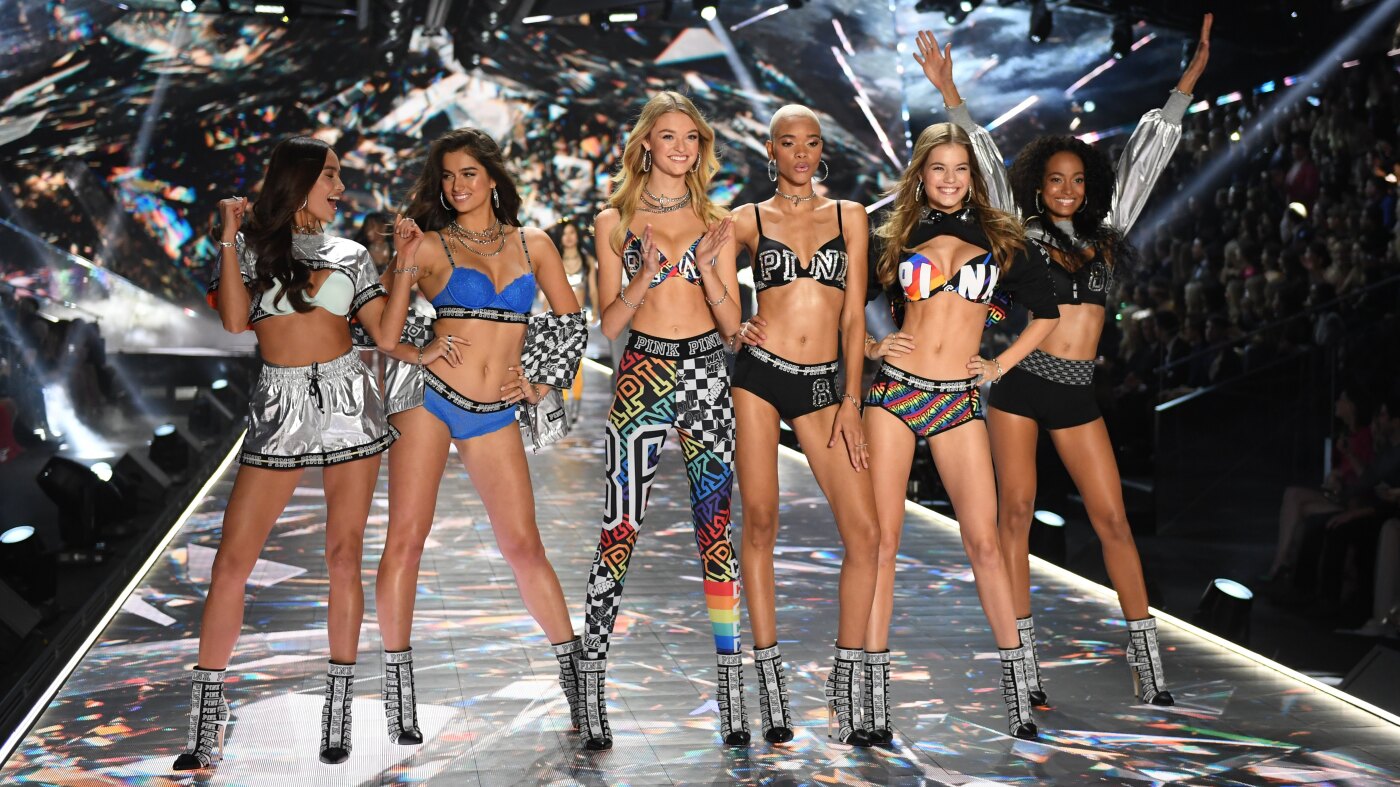
Models Kelsey Merritt (from left), Maia Cotton, Willow Hand, Iesha Hodges, Myrthe Bolt and Melie Tiacoh walk the runway at the 2018 Victoria’s Secret Fashion Show on Nov. 8, 2018, at Pier 94 in New York City.
Timothy A. Clary/AFP via Getty Images
hide caption
toggle caption
Timothy A. Clary/AFP via Getty Images
Victoria’s Secret models are returning to the runway for the lingerie company’s fashion show, following a six-year hiatus of the once-famed event.
Tuesday night’s event will be the first time the company hosts a full fashion show since Victoria’s Secret execs announced the show’s cancellation in 2019.
At the time, the fashion industry was facing backlash amid the body positivity, transgender rights and #MeToo movements, which saw modeling as a key industry for change.
And controversial remarks from then-Chief Marketing Officer Ed Razek only brought additional scrutiny.
“Shouldn’t you have transsexuals in the show? No. No, I don’t think we should,” Razek said at the time, using an outdated term for transgender people. He also said that there was no interest in seeing plus-sized women on the runway and said the show was meant to be a “fantasy.”
Razek later resigned amid that and other controversies.
Now, as the models once again don the company’s fashionwear, Victoria’s Secret says its values have shifted and the 2024 show will be a reflection of those changes.
Writing on Instagram back in May, the company said: “We’ve read the comments and heard you. The Victoria’s Secret Fashion Show is BACK and will reflect who we are today, plus everything you know and love—the glamour, runway, wings, musical entertainment, and more!”

Past Victoria’s Secret superstars like Jasmine Tookes and Adriana Lima will make their return to the stage, as well as plus-size model Ashley Graham. Television host and supermodel Tyra Banks, who last walked a runway in the 2005 Victoria’s Secret show, will also join the cast.
Hoping to bring in a wider audience, the fashion show will be available for streaming on Amazon’s Prime Video, as well as new media platforms: YouTube, TikTok and Instagram.
The past several years have been tough financially on Victoria’s Secret as competition in the mid-range lingerie market has grown and the brand name lost some of its luster among younger shoppers.
A triumphant return of its annual fashion show, which at its peak saw 12.4 million viewers, could help the company claw back some of its declining market share.
Lifestyle
LVMH Investors Jittery Over Anaemic China Demand for European Designer Goods

-
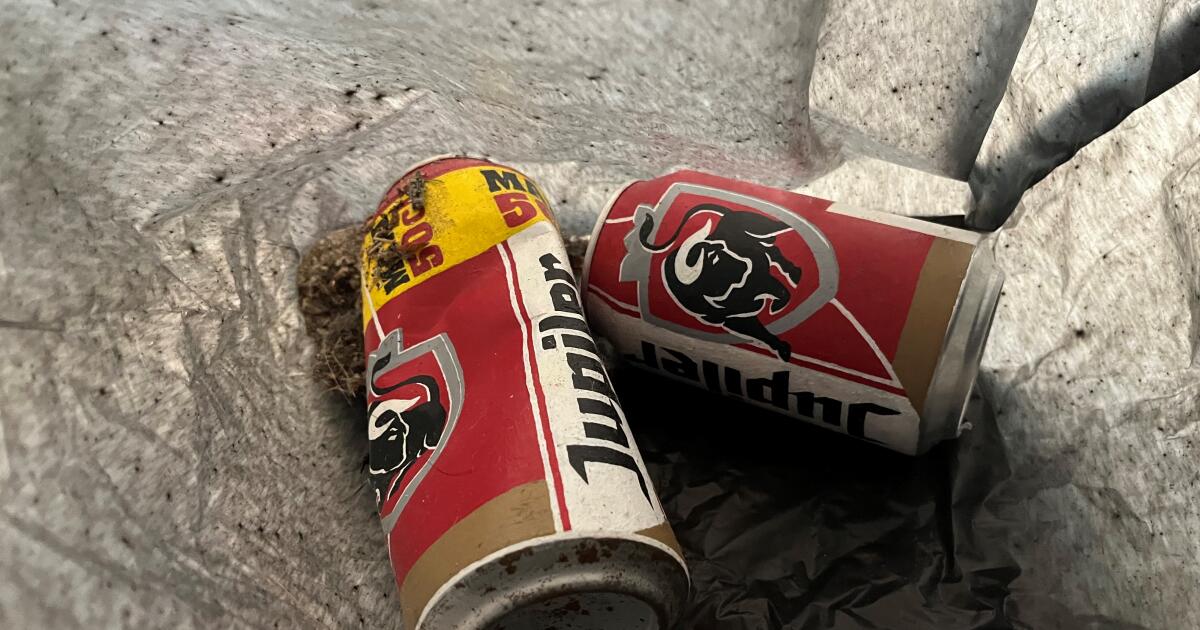
 Entertainment6 days ago
Entertainment6 days agoHold my beer can: Museum says a worker thought unique art installation was trash
-
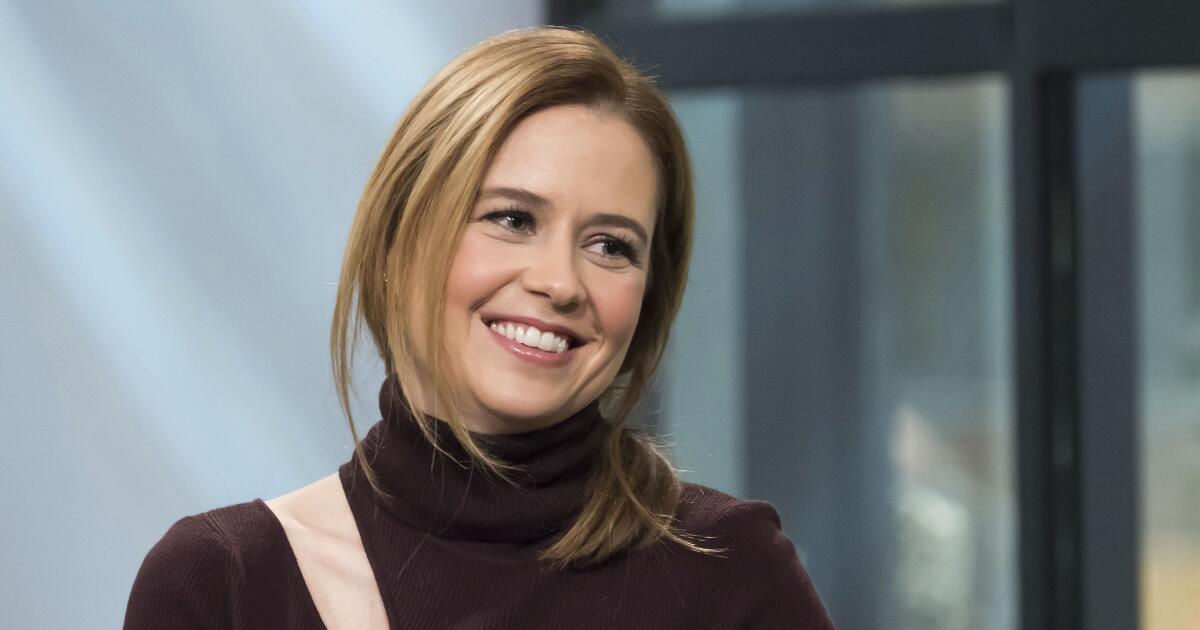
 Entertainment1 week ago
Entertainment1 week ago'The Office' star Jenna Fischer reveals private breast cancer battle: 'I am cancer free'
-
/cdn.vox-cdn.com/uploads/chorus_asset/file/25673932/462754179_560996103109958_6880455562272353471_n.jpg)
/cdn.vox-cdn.com/uploads/chorus_asset/file/25673932/462754179_560996103109958_6880455562272353471_n.jpg) Technology4 days ago
Technology4 days agoMeta suggests AI Northern Lights pics are as good as the real thing
-

 Technology6 days ago
Technology6 days agoScammers exploit grief with fake funeral streaming on Facebook
-
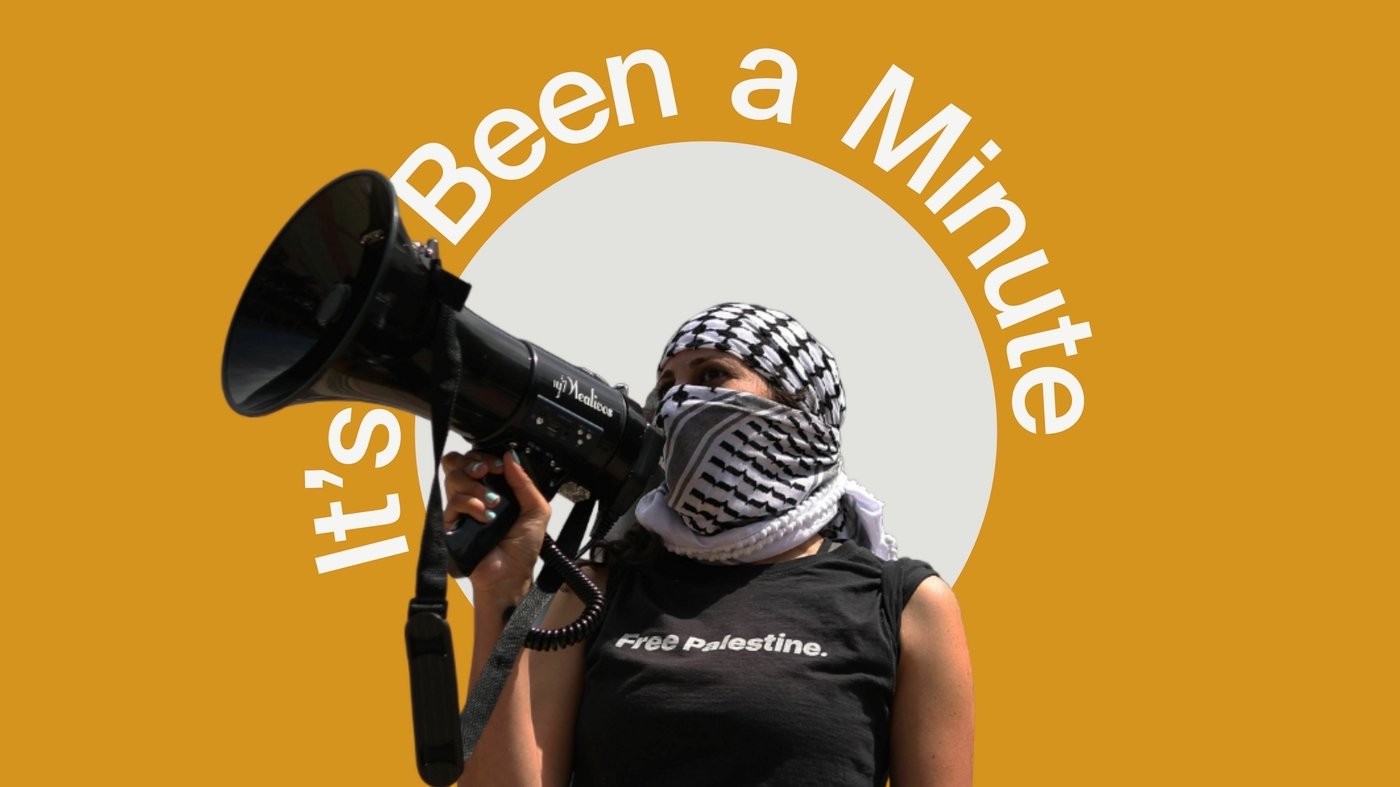
 Lifestyle3 days ago
Lifestyle3 days agoIs the free speech debate dead? Plus, the devil! : It's Been a Minute
-
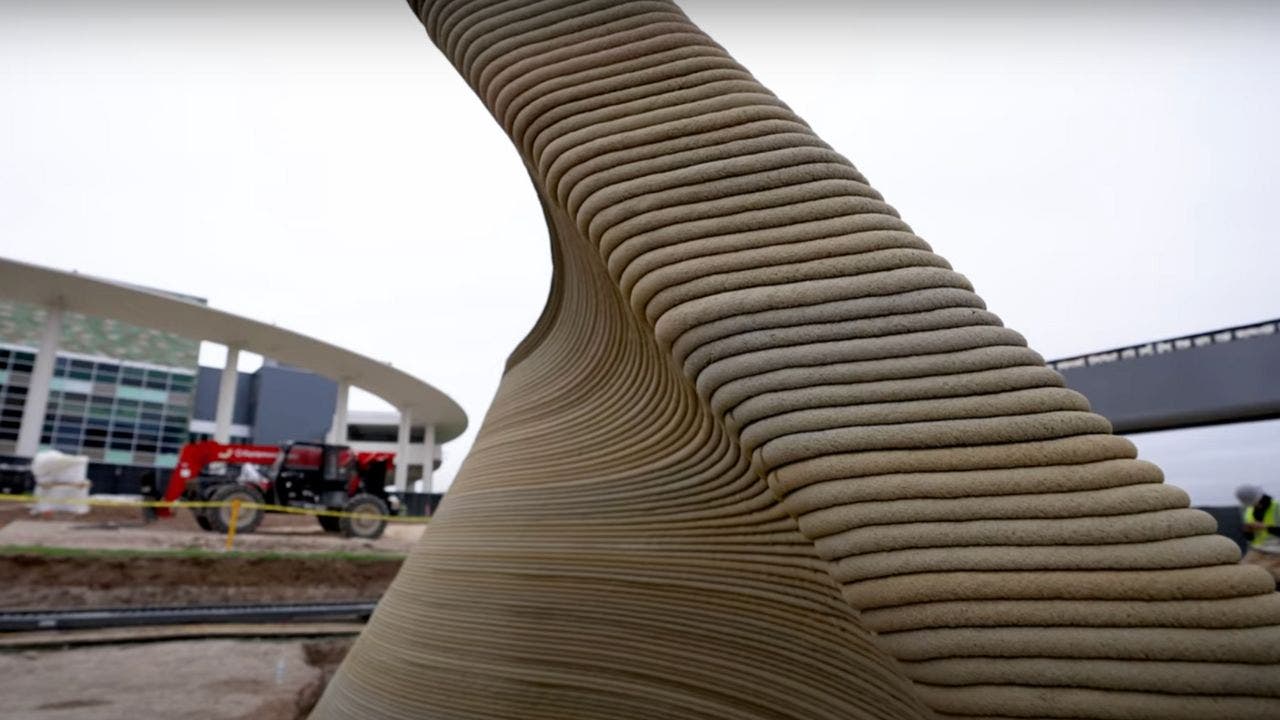
 Technology2 days ago
Technology2 days agoThis 3D-printed Texas hotel is shaking up the construction industry
-

 Lifestyle2 days ago
Lifestyle2 days agoHow one Afro-Colombian community honors their ancestry
-
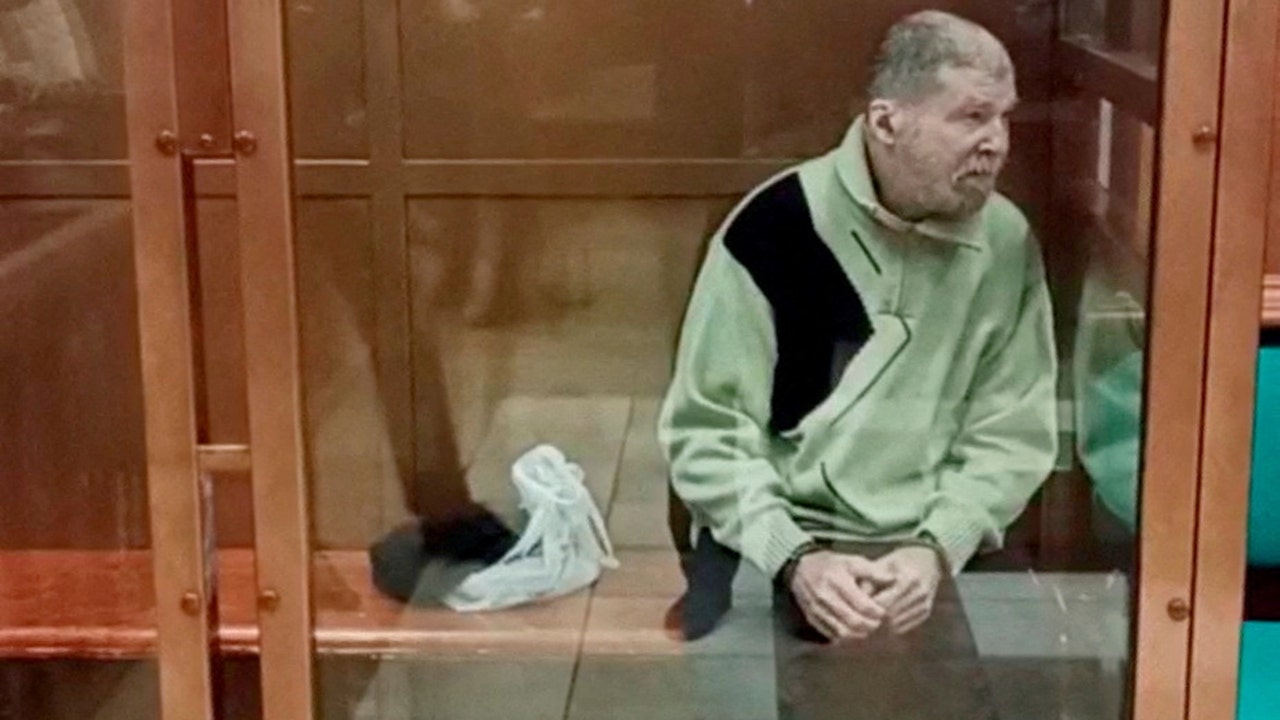
 World1 week ago
World1 week agoRussia jails American Stephen Hubbard over fighting as a mercenary in Ukraine















